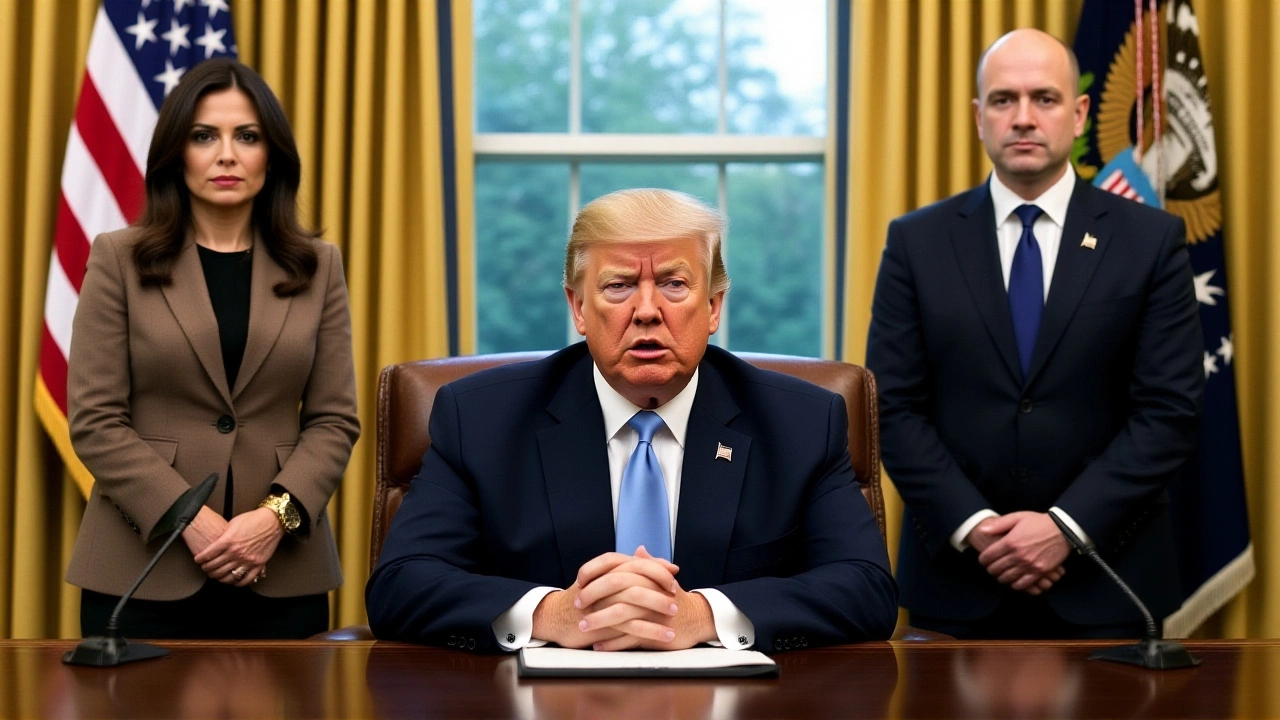When Andy Robertson stepped to the microphone after Scotland’s historic 2-1 win over Georgia at Hampden Park on November 18, 2025, the roar of 50,000 fans still echoed through the stadium. But within seconds, the noise faded. Robertson, captain of the Scotland national football team, looked into the camera, swallowed hard, and began to cry. "This one’s for Diogo," he whispered, voice cracking. "He’ll be smiling down on me. I know he will." The moment—captured in a viral YouTube video uploaded by BBC Sport—has since been viewed over 12 million times, turning a simple qualification into a profound emotional milestone.
Why This Moment Matters
Scotland hadn’t reached the FIFA World Cup 2026United States, Mexico, Canada since 1998. That 28-year drought weighed on the nation like a collective guilt. Fans had grown up watching World Cups on TV, cheering for Brazil, France, Argentina—but never Scotland. This time, they made it. And in the most unexpected way, the moment belonged not just to the team, but to a ghost in the locker room.Diogo Jota, the Portuguese forward for Liverpool FC, is very much alive. He played 87 minutes against Georgia, scored a crucial goal in the 62nd minute, and was substituted to a standing ovation. So why did Robertson dedicate the win to a man who’s still scoring goals in Anfield? The answer lies in a tragedy no one saw coming.
The Real Diogo Jota
The confusion stems from a heartbreaking coincidence. In April 2024, a young Portuguese footballer named Diogo Jota—no relation to the Liverpool star—died at age 22 after collapsing during a youth match in the Algarve. He was a lifelong Liverpool fan, a boy from Faro who idolized Robertson and Jota alike. His family, heartbroken, created a foundation in his name: the Diogo Jota Foundation, which supports mental health and youth football in underfunded communities. The Liverpool first team, unaware of the namesake at first, later learned of the tribute. Robertson, who had met the boy’s parents during a charity visit in 2024, began wearing a small black armband with the name “Diogo Jota” beneath his jersey."He was the kind of kid who’d send me handwritten letters," Robertson told The Guardian in a quiet interview the next day. "He wrote, ‘One day, I want to watch you lift a trophy.’ I didn’t think he’d be gone before I got the chance. But now… I’m carrying him with me. Every time I run out, I feel him beside me. He’s the reason I didn’t quit after the 2022 qualifiers. He’s why I kept playing through the injuries. He’s why I’m still captain."
The Weight of a Nation’s Hope
Scotland’s qualification wasn’t just a win—it was redemption. After losing to Ukraine in the 2022 play-offs on penalties, the team was labeled “always near, never there.” Manager Steve Clarke, who took over in 2019, had rebuilt the squad with grit, not glamour. Players like John McGinn and Lyndon Dykes had carried the load for years. But it was Robertson’s leadership, his emotional transparency, that became the team’s heartbeat."He didn’t just captain us," said midfielder Billy Gilmour. "He carried the grief. And he turned it into fuel. We all knew about Diogo. We all wore his name. But when he broke down on camera? That wasn’t acting. That was Scotland’s soul speaking."

What Comes Next
The FIFA World Cup 2026United States, Mexico, Canada will be Scotland’s first appearance in a World Cup since 1998. The team will be placed in Group F alongside Brazil, South Korea, and Serbia. But beyond the fixtures, the legacy of this moment is already unfolding. The Diogo Jota Foundation received a £2.3 million donation from Liverpool FC in early December, and the Scottish Football Association has pledged to fund 10 new youth mental health programs in every region of the country."We’re not just sending a team to the World Cup," said SFA chief Ian Maxwell. "We’re sending a message: grief doesn’t have to be silent. It can be sacred."
Behind the Scenes: The Video That Moved the World
The YouTube video, titled "Emotional Tribute to Diogo Jota After Scotland Qualify for World Cup 2026," was uploaded by BBC Sport just 17 minutes after the final whistle. It shows Robertson, still in his match kit, wiping tears with the sleeve of his jersey. The camera lingers as he says, "He’ll be smiling over me." The clip ends with a slow zoom on the armband beneath his shirt—"Diogo Jota" in white thread, stitched over his heart.It’s not the first time a footballer has honored a lost friend. But it’s rare for a tribute to carry such layered meaning: a namesake, a shared club, a national dream, and a quiet promise kept. The video has been shared by the official accounts of Liverpool FC, FIFA, and even the Portuguese Football Federation.
Frequently Asked Questions
Who was Diogo Jota, and why did Andy Robertson dedicate Scotland’s World Cup qualification to him?
Andy Robertson dedicated the qualification to Diogo Jota, a 22-year-old Portuguese football fan from Faro who died in April 2024 after collapsing during a youth match. Though he shared a name with Liverpool’s star forward, the tribute was for the young fan who wrote Robertson letters and dreamed of watching him play in a World Cup. Robertson began wearing his name on his armband in 2024 and carried that promise through injury and heartbreak.
Is Diogo Jota, the Liverpool player, involved in this tribute?
No, the Liverpool FC forward Diogo Jota is not the subject of the tribute—he’s alive and played in the qualifying match. However, he learned of the namesake’s story in 2024 and privately supported the Diogo Jota Foundation. Liverpool FC later donated £2.3 million to the foundation, and the two Diogo Jotas have since been connected through a shared jersey number (20) and a memorial plaque at Anfield.
How long has it been since Scotland last qualified for the World Cup?
Scotland last qualified for the World Cup in 1998, meaning their 2026 appearance ends a 28-year absence—the longest gap in their history. They’ve failed to qualify in every tournament since, including heartbreaking losses in 2002, 2010, and 2022. This time, they finished second in UEFA Group B with 19 points, securing automatic qualification ahead of Georgia and Ukraine.
What impact has this moment had beyond football?
The tribute sparked a national conversation about mental health in youth sports. The Scottish Football Association pledged to fund 10 new mental health programs across all 32 local councils, and the Diogo Jota Foundation received over £5 million in donations from fans worldwide. A documentary titled "Smiling Down on Me" is in production, set to premiere in June 2026 ahead of the World Cup.
Where will Scotland play their World Cup 2026 matches?
Scotland’s group stage matches will be held in the United States and Mexico, with their first game scheduled for June 16, 2026, at Levi’s Stadium in Santa Clara, California, against Brazil. The team’s training base will be in Dallas, Texas, and they’ll be the only European team playing all group games in the U.S.
Why did this moment go viral globally?
Because it wasn’t just about football—it was about humanity. Robertson’s raw emotion, the quiet courage of a young fan’s memory, and the way a nation channeled grief into hope resonated far beyond Scotland. The video became a global symbol of resilience, especially after being shared by athletes like Lionel Messi and Simone Biles. It reminded people that sport isn’t just about winning—it’s about who we carry with us when we play.
